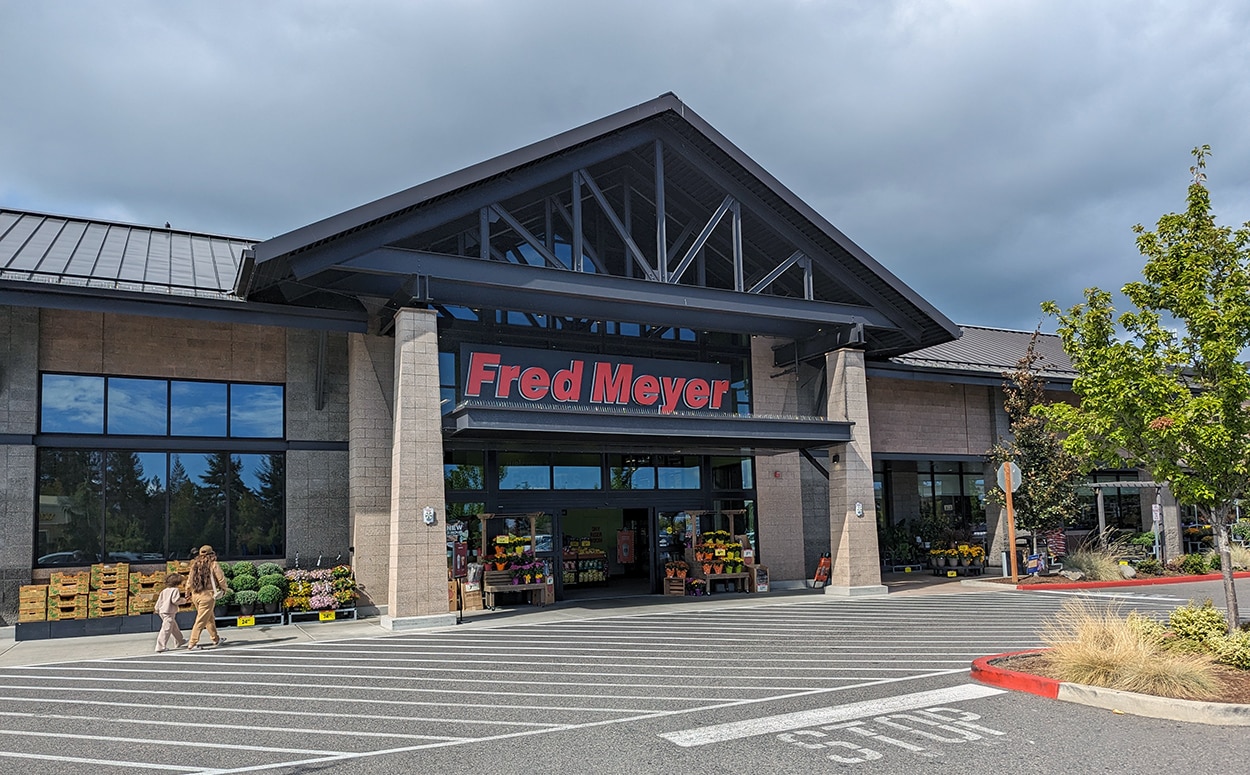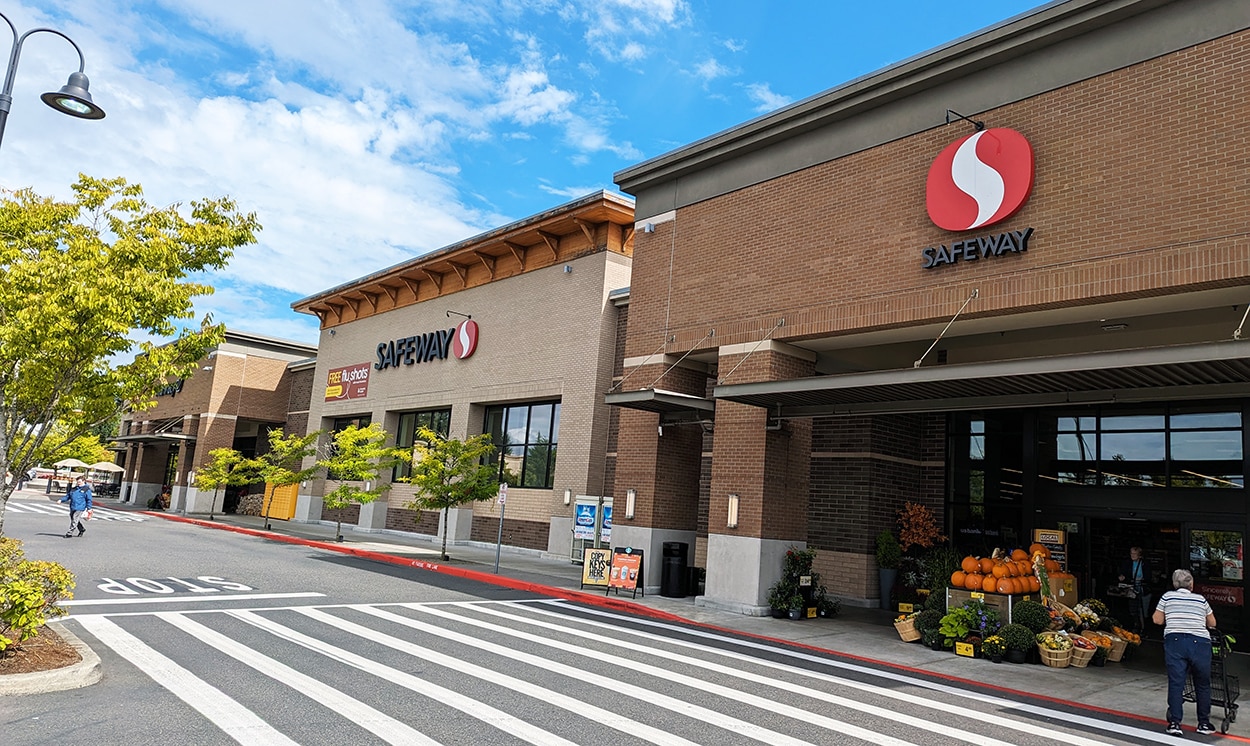Business Community
Timeline for grocery merger pushed back as Washington attorney general sues
Kroger, owner of Fred Meyer and other grocery chains, announced this week that its proposed merger with Albertsons will take longer than it previously thought.
Meanwhile, Washington Attorney General Bob Ferguson announced that his office is suing to stop the merger. The Democratic attorney general, who is running for governor this fall, argued that the merger would “will severely limit shopping options for consumers and eliminate vital competition that keeps grocery prices low.”
If the merger goes forward, Gig Harbor shoppers will feel its effects. Kroger owns Fred Meyer, while Albertsons owns Safeway in addition to its own eponymous brand.

Kroger, which owns Fred Meyer, proposes to merge with Albertson’s, which owns Safeway. The two chains currently operate grocery stores within a half-mile of each other on Point Fosdick Drive.
The combined company would sell 413 stores nationwide, including 104 in Washington state, to C&S Wholesale Grocers. C&S currently does not operate any grocery stores in the state.
Kroger has not announced which specific stores it plans to sell to C&S. But it’s worth noting that the Gig Harbor Fred Meyer and Safeway are a half-mile apart on Point Fosdick Drive.
Timeline pushed back
On Monday, Kroger announced that it now expects to close its merger “in the first half of (its) fiscal 2024.” Kroger’s fiscal year starts Feb. 4 and its second quarter ends Aug. 17.
Kroger cited its “active and ongoing dialogue” with the Federal Trade Commissions and various state attorneys general as the reason for the delay. Previously, Kroger said it expected to complete the merger by early this year.
The financial news service Bloomberg previously reported that the FTC expected to rule on the merger by Jan. 17. Then Axios reported last week that the FTC likely would not decide on the merger until February.
In a joint statement issued by Kroger, Albertsons and C&S, the companies said they knew a delay was possible. “We remain committed to closing the transaction and providing the meaningful and measurable benefits that we promised when we originally announced the transaction,” the statement said.
Today we’re challenging the proposed merger of Washington’s two largest supermarket companies: Kroger and Albertsons. Grocery prices are already too high. Without a competitive marketplace, Washingtonians will pay even higher prices. Learn more: https://t.co/SKwX7MxZl6 pic.twitter.com/fi7kYWhogU
— Attorney General Bob Ferguson (@AGOWA) January 15, 2024
Attorney general lawsuit
The Washington attorney general sees no such benefits. Ferguson filed a lawsuit in King County Superior Court on Monday, Jan. 15, seeking to halt the merger.
The suit argues that the merger would decrease competition between grocery chains and lead to higher prices. It alleges that the transaction likely will result in store closures and leave consumers with fewer shopping choices, since consolidation of grocery chains will also lead to consolidation of suppliers they use.
The suit also argues that C&S “has a history of buying grocery stores, then selling them to their customers in the wholesale distribution business. Through this practice, C&S can lock in lucrative distribution agreements with these divested stores, without having to undertake the work necessary to operate them.” C&S is primarily a supplier, not an operator, of grocery stores.

Washington Attorney General Bob Ferguson
“This merger is bad for Washington shoppers and workers,” Ferguson said in a news release announcing the lawsuit. “Free enterprise is built on companies competing, and that competition benefits consumers. Shoppers will have fewer choices and less competition, and, without a competitive marketplace, they will pay higher prices at the grocery store.”
California reportedly is preparing a lawsuit against the merger. Six U.S. senators and representatives, all Democrats or independents, sent a letter to the FTC in December objecting to it. And consumers have protested the move during town hall meetings in other states, notably Colorado.
Gig Harbor angle
Ferguson’s lawsuit cites Gig Harbor as one of 49 communities in the state in which the merger would have a negative effect on competition in the grocery store market.
Elsewhere, the lawsuit quotes a Gig Harbor consumer, who told the AG’s office that the merger would leave them with “limited choices to fill prescription medications without traveling some distance.” Pharmacies housed within grocery stores are the most convenient for this consumer, the lawsuit says, and after the merger they may not be in-network.

The Safeway on Point Fosdick Drive is about a half-mile away from the Fred Meyer on the same road. Their future is unknown if a proposed merger between Fred Meyer owner Kroger and Safeway owner Albertson’s is approved.
Kroger and Albertsons respond
Kroger and Albertsons continue to argue that the merger would mean more choice and lower prices for customers. The companies also promise to protect union jobs and vows that Kroger will not close any stores or other facilities if the merger wins approval.
“If the merger is blocked, the non-union retailers like Walmart and Amazon will become even more powerful and unaccountable – and that’s bad for everyone,” Kroger said in a statement emailed to the industry publication Supermarket News. “Any decision to attempt to enjoin the transaction now would be premature as we are engaged in productive discussions with the FTC and state Attorneys General about how this merger will bring lower prices to more of America’s consumers who are still reeling from high grocery prices.”
